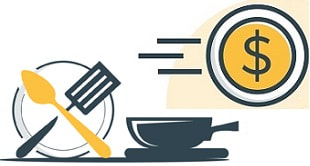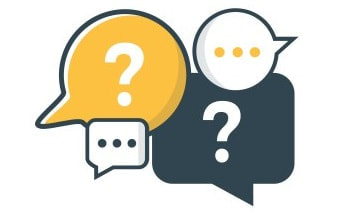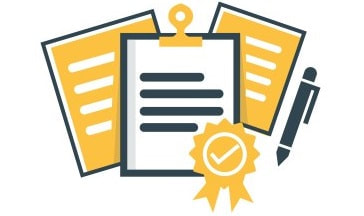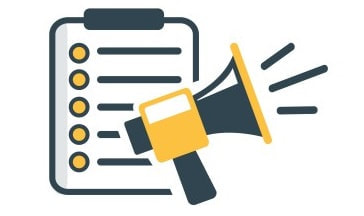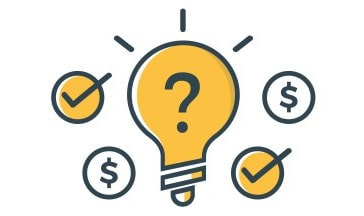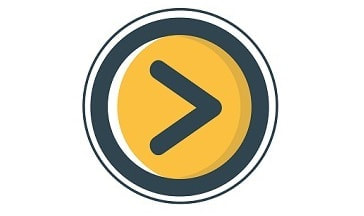Work and Income Food Grants - The Definitive Guide
Apply for a food grant with confidence by using our detailed guide. We outline eligibility, the application process, alternatives and must-know tips
Updated 29 September 2020
A Food Grant is financial assistance to pay for food. Rather than paying money to your account, a certain amount of money is loaded onto a payment card which you can then take to the supermarket and use when you come to pay.
There are some limitations about what you can buy, and you can’t get cash or change. A Food Grant provides a simple and discrete way of getting the assistance you need.
A Food Grant is a type of assistance that you don’t need to pay back. An application for assistance with food is to be considered an emergency, so Work and Income will usually ensure you are seen on the same day you apply. Our guide covers:
There are some limitations about what you can buy, and you can’t get cash or change. A Food Grant provides a simple and discrete way of getting the assistance you need.
A Food Grant is a type of assistance that you don’t need to pay back. An application for assistance with food is to be considered an emergency, so Work and Income will usually ensure you are seen on the same day you apply. Our guide covers:
Food Grants in a Nutshell
- To use the grant, you will need to go to the supermarket and buy food with the money loaded.
- There are a few limits (e.g. no alcohol or cigarettes), but in general, you are free to buy what you need.
- To qualify you’ll need to explain why you can’t buy food this week and in particular, what makes this week different.
Important:
- You may see information about Food Grant allowances and limits posted on social media and forums - these are best ignored. You can always apply for a Food Grant, and if your circumstances justify it, Work and Income can always grant assistance - be open and honest about why you need assistance.
- If Work and Income do decline your application, they will explain why and offer to refer you to a Food Bank.
- If you are unhappy with the decision they’ve made and the reasons, ask to speak with the Service Centre Manager or ask for a Review of Decision form.
Who Can Get a Food Grant?
If you have had to pay for an essential cost which means you don’t have enough money to buy food, you’ll generally be able to apply for a Food Grant. Some examples of essential costs or changes of circumstance given by Work and Income include:
This isn’t an exhaustive list; if you’ve had an unexpected and essential expense, then you may be able to get a food grant.
Beyond this, you’ll also need to be:
Other factors:
- A doctors visit
- School clothes or materials for your child
- An unexpected reduction in your hours of work
- You’ve been off work sick and don’t have any sick pay available
This isn’t an exhaustive list; if you’ve had an unexpected and essential expense, then you may be able to get a food grant.
Beyond this, you’ll also need to be:
- Aged 16 or over
- A New Zealand citizen or permanent resident
- Normally live in New Zealand and intend to stay
- Have an urgent and immediate need to buy food
- Have no other way to pay for food (e.g., no money in the bank and no assets).
Other factors:
- Eligibility also depends on your weekly income. Work and Income can consider your weekly or annual income, depending on which option may help you qualify.
- The limits are updated regularly and available on the Work and Income website. Currently, a single person over 18 qualifies if they earn less than $584.46 per week before tax.
- If you are receiving a main benefit from Work and Income, only your main benefit rate and any part-time income you earn are considered - not non-taxable allowances like Accommodation Supplement or Family Tax Credits.
- Important: If your hours have been reduced, or if you’ve lost your job, apply based on your current income, not as though you were working a 40 hour week - this will help your eligibility.
Understand the 'No Money in the Bank' Criteria
- One of the eligibility requirements above is that you have no other way to pay for food such as money in the bank.
- This doesn’t necessarily mean you have to have a zero available balance. If you have bills coming up (such as rent), then having the rent money in the bank account won’t automatically exclude you from getting help. Work and Income may ask why you have money in the bank so you'll need to explain its purpose.
- Furthermore, Work and Income does not expect you to get into more debt. If you have an overdraft or credit card, you don’t have to dip into that before being able to access a food grant.
How to Apply for a Food Grant
There are three options:
How to Apply for Success
- If you are a current Work and Income client (or have been int he past) you can often apply online using MyMSD.
- If you are a new client, you’ll need to call the contact centre to discuss your circumstances.
- You can also apply at a Work and Income service centre but bear in mind that they work on an appointment basis and you may have a long wait to be seen (essentially you are waiting for someone to cancel an existing appointment). Your local service centre may have a phone or computer you can use to apply online though, so it's worth paying a visit if you need to.
How to Apply for Success
- During the application process, you’ll be asked about why you don’t have money for food. This isn’t so Work and Income can pass judgement, it's so they can confirm you meet the eligibility criteria of having an immediate and essential need for food due to an unexpected expense.
- If you have money in the bank, you may be asked to explain what this is for. If you’ve got a rent payment coming up, explain this so Work and Income can make a note.
- When your application is approved, Work and Income will give you a payment card - it is like a credit card or Prezzy Card which has money loaded on to it.
- The difference is you can only spend it at certain shops and suppliers (usually your local supermarket), and the money is returned to Work and Income after seven days if it's not spent.
- If you don’t already have a payment card, then Work and Income will talk about the best way to get you one - usually, this means visiting your local service centre to collect one from reception.
What can I use the Food Grant for?
- Firstly, how much you can get depends a lot on your circumstances. A single person living at home could expect to get much less than a solo parent with a child.
- Work and Income have some guidelines, but it's up to you to suggest an amount. Try and be realistic about how much you usually spend on food, but it doesn’t hurt to add a bit more so you can take the opportunity to stock up on essentials that are a bit more expensive.
- You can generally use your payment card to buy food and essential grocery items. You can’t buy things like alcohol, cigarettes, gift-cards or vouchers and you can’t get cash out. Nor can you buy lotto tickets, appliances or electronics.
- Sometimes supermarket operators do get a bit overzealous and will try and stop you buying snack foods or treats, but this isn’t a Work and Income rule, and there is no need for them to know how you are paying for your groceries.
- Because the payment card works just like an EFTPOS card you can use the self-service checkout too.
- If you don’t spend the full balance that was granted, you have two options - spend the money later on (it expires after seven days) or let the money return to Work and Income.
Getting Declined for a Food Grant - What to Do Next
On the whole, the application process for Food Grants is much easier than in the past, and it’s unlikely you’ll be declined. However, if you are declined assistance, you have a few options which we outline in detail below:
Ask to Speak with the Service Centre ManagerIf you are declined while you are in the office, your case manager should explain why they have declined your application. Generally, this will be because:
If you aren’t happy with the decision, the first step is to ask to speak with the manager. They’ll almost always make time to see you and look into your situation. The Service Centre Manager can approve exceptions where a case manager can’t, so this is a worthwhile first step. The Service Centre Manager should speak with you and if they can’t help, offer some solutions. |
Lodge a Review of Decision
|
I Still Have No Food - What Can I Do?
- While the Review of Decision process for Food Grants is fast-tracked, it's not usually fast enough to solve an immediate food problem.
- Any decision Work and Income make should be accompanied by a letter that explains their decision - make sure you get this before you leave the office.
- Your next best option is to approach your local Food Banks.
- Work and Income often have a list of local Food Banks, or you can find them on the Family and Community services directory here.
What is a Food Bank?
- A Food Bank is a charity that will provide food parcels to people in need. While you don’t get to choose the food, there is generally a selection of canned and non-perishable items that will last for a while if you have some basic cooking skills.
- Most Food Banks will provide help on a no-questions-asked basis, but if you are a regular user they may ask you to make sure you are up to date with your Work and Income entitlements - this is where your letter from Work and Income comes in handy.
- It’s not an ideal solution but can help in an emergency.
Food Grants - Six Must-Know Tips and Facts
Navigating a Food Grant with Work and Income should not be complicated, but we've listed must-know tips to help explain the scheme's finer details.
Understand the Limits and Entitlements to FoodWork and Income do have guidelines and limits for how much food assistance someone can receive in a six month period, but a senior staff member can easily overrule this if you have a good reason.
The reason for the limits is that people shouldn’t be relying on regular food grants to make ends meet - their benefit assistance and/or work should be enough. Applying for a Food Grant is a trigger for Work and Income to look into your entitlements a bit more and make sure you are receiving everything you should be. Don’t be put off if you are told you have exhausted your entitlement to assistance - make an application anyway and explain why you need help - there is always discretion to go over the stated limits. |
Budgeting Advisors Exist to HelpAfter you’ve had a couple of food or hardship grants in a six month period, Work and Income may ask you to do some budgeting activities to make sure you are doing everything you can to budget your money. For a lot of people, this seems pointless - the problem isn’t the budget, it's not having enough money.
But budgeting advisors can help negotiate debt repayments and sometimes have access to discounted or free services that you are currently paying for. Our guide to debt help explains their services in detail. If Work and Income ask you to meet with a budget advisor, it is often worth the effort and we recommend it. |
Know that Emergency Appointments ExistWork and Income have done a lot to make access to emergency assistance easier over the last couple of years, including making it possible to apply for food grants online and on the phone. While you can still visit a Service Centre, with increased security and COVID-19 restrictions you may find it easier to call and apply (or apply online).
Work and Income have emergency appointments available each day, but these usually get booked up quite quickly. More often than not, you end up waiting at a service centre for hours - essentially you are hoping someone with an appointment doesn’t show up so their assigned case manager can see you. In an emergency this might be the best option, but if you can - try and apply online via MyMSD. |
It’s Always Best to be HonestAs with all interactions with Work and Income, it's often better to be upfront and honest rather than try and tell Work and Income what you think they want to hear.
Stories of benefit money “blowing away” or wallets being stolen after you’ve withdrawn all your cash will often be met with scepticism. In contrast, overdue bills or a change in family circumstances might invite a discussion about further assistance you can receive. Remember, Work and Income needs to ask why you need assistance - they aren’t doing it to be judgemental. |
Make Sure You're Getting Your Full (and Correct) EntitlementIf you apply for any emergency assistance, Work and Income should check that you are receiving your full and correct entitlement to assistance. This might include inviting you to apply for Temporary Additional Support and checking that you’re rent or board payments are still the same.
You should strongly consider taking up this assistance - it may mean more money each week and reduce the need to visit and apply for emergency assistance. |
Make Work and Income Say 'No' (it's the worst-case outcome)It’s really easy to get discouraged reading about people’s Work and Income experiences online, but there is a fair amount of confusion and misinformation about entitlements.
|
Related Guides
- Navigating Work and Income - an essential must-read guide that explains everything you need to know about dealing with Work and Income before visiting your local office
- Auckland Food Banks Directory
- myMSD - we explain why myMSD is, how it works, why it's essential and must-know tips and facts
- Community Services Card - we cover who qualifies, what it offers and why they're important
- Understanding urgent costs and living expense assistance - we explain what's available to anyone in urgent need
- Understanding the Accommodation Supplement - despite its complexities, our guide reveals everything you need to know about how it works
- Understanding Jobseeker Support - we explain how this benefit works and reveal tips to make sure you're supported for as long as you need to be.
- Disability Allowance - we walk through the basics of those who need extra support
- Loans for Unemployed - If you're unemployed, this guide outlines the types of loan available. We look at Work and Income support, as well as the potential risks of taking a loan and the cost-effective alternatives you may apply for
- Understanding Superannuation (NZ Super) - our guide walks you through how it works, what you're entitled to and must-know tips to help your payments go further.
- Working for Families - our guide explains the scheme in detail

